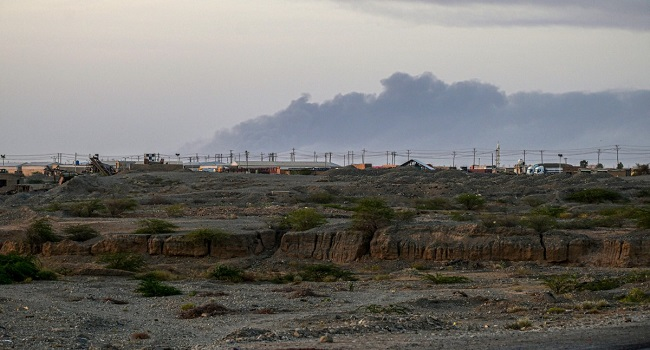Sudanese paramilitary forces launched an attack on Port Sudan on the Red Sea coast on Sunday, marking the first strike on the headquarters of the army-aligned government since the civil war began two years ago.
According to army spokesman Nabil Abdullah, the Rapid Support Forces (RSF) “targeted the Osman Digna Air Base, a commercial warehouse, and some civilian facilities in Port Sudan using suicide drones”. He reported no casualties, though “limited damage” was sustained, and smoke was seen rising from the city’s airport.
The RSF has intensified its use of drones in recent weeks, striking army-held territories more frequently since losing key areas—including much of the capital, Khartoum—in March.
On Saturday, a government source reported a rare drone strike on Kassala, a city near Sudan’s eastern border with Eritrea, some 400 kilometres from the nearest RSF-controlled territory.

In the early stages of the conflict, Sudan’s government had relocated its administrative base from Khartoum to Port Sudan, which had until now remained untouched by the fighting.
The city has also become a hub for international organisations, with United Nations agencies moving their operations there. It currently hosts hundreds of thousands of civilians displaced by the ongoing war.
Since April 2023, Sudan’s regular army, led by General Abdel Fattah al-Burhan, has been locked in a violent power struggle with the RSF, commanded by Mohamed Hamdan Daglo. The war has left tens of thousands dead and displaced approximately 13 million people.
The fighting has effectively split Sudan, with the army holding the central, eastern, and northern regions, while the RSF controls much of the western Darfur region and parts of the south.
In February, the RSF and allied factions signed a charter in Kenya outlining plans to establish a rival government to the existing army-aligned administration.


 Trending
Trending 



